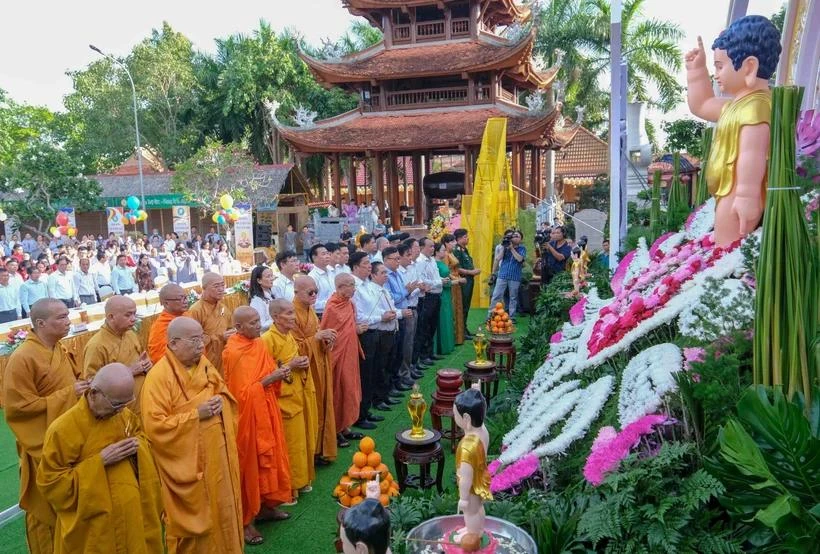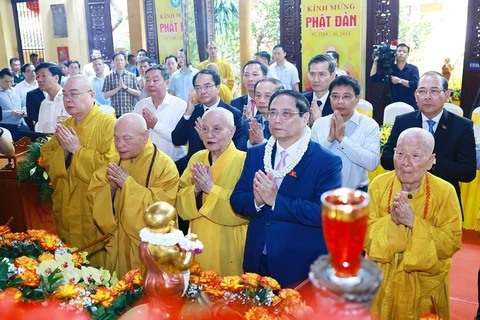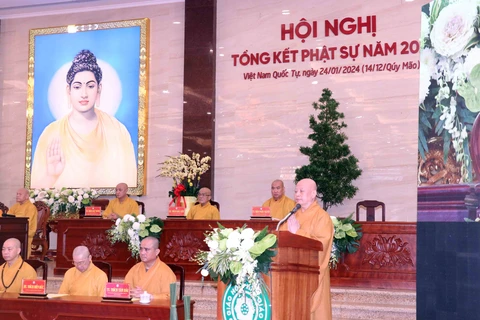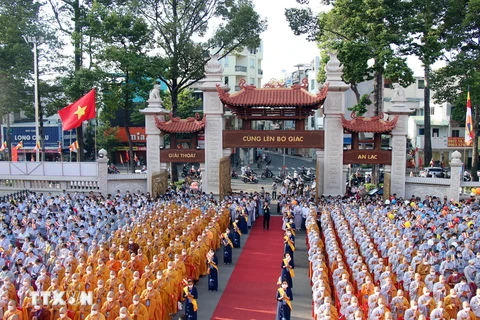
Hanoi (VNA) - Throughout its more than 2,500 years of existence, Buddhism espouses a specific philosophy on human rights, ensuring these rights for all citizens, and that the life of every creature is equally valuable.
The concept of human rights is now a focus of attention in modern society. The 1948 international declaration on the human rights affirms that everybody is born free and equal, and is deserving of dignity and benefit. This viewpoint is also mentioned in Buddhist philosophy in existence for 2,500 years, found in the credo, “Everyone’s blood is red, everyone’s tears are salty, and these are the virtues that make everyone human”.
Buddhism is one of the major religions in the world, and also influential in Vietnam with a large number of followers. According to researchers, the spread of the Buddhist philosophies also shows the spirit of respecting human rights by the Vietnamese Party and State.
Upholding freedom of individuals
The leading spirit of Buddhism is turning toward peace, upholding the way of life of enlightenment, full of mercy and humanity, on the basis of a profound philosophy on the pure virtue of the people. Those characteristics make Buddhism especially close and an extensive source of strength with respect to the protection of human rights in each country and in the world as a whole.
Associate Professor, Doctor Chu Van Tuan from the Religious Research Institute held that Buddhism contains many ideologies on human rights such as those to life, equality, gender equality, and freedom. It can be said that all the Buddhist teachings show the ideology and spirit of respecting the human being, human dignity, and equality.

Tuan affirmed that the viewpoint of Buddhism on human rights is very specific, as it respects the right to life of human beings and to equality of chances, in religions and beliefs. For the right to freedom, Buddhism upholds individual rights in the selection and decision of their actions, the researcher said.
Sharing the viewpoint, Doctor Pham Thanh Hang from the Institute of Religions and Beliefs also affirmed that Buddhism is contributing greatly to ensuring and realising human rights in the world and Vietnam in particular.
Buddhism holds that the life of every creature is equally valuable.

In fact, although Buddhism does not directly touch upon the concept of “human rights” or “right to freedom” with a modern connotation, it represents content suitable to ensuring and developing human rights in the new society.
Applying Buddhist philosophies to life
The correct explanation and practice of Buddhism is also a way to realise human rights in the spirit of the modern democracy in current society.
Doctor, Venerable Thich Nguyen Chinh, member of the Administration Council of the Vietnam Buddhist Sangha, said understanding and abiding by Buddha’s teachings can help reduce and prevent violations of interest. He said that the life of every creature faces challenges as the world situation changes, and competition between major countries, civil wars, and other catastrophes threaten society.
Researchers said that the Vietnam Buddhist Sangha has well implemented religious solidarity, helping build national solidarity and ensuring the right to freedom of religions for all as prescribed by law. Buddhism brings about fine cultural and virtuous values of religions in service of the national development./.






















